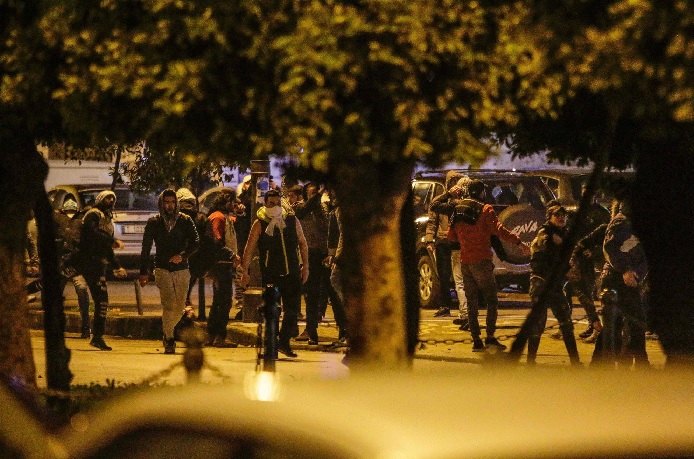
Formed by Hezbollah and its allies, new government faces one of the biggest financial crises in the country’s history.
Lebanon’s new government met for the first time Wednesday as President Michel Aoun said its main task was to win back international confidence that could unlock the funding the crisis-hit country badly needs.
Formed by the Iranian-backed group Hezbollah and its allies without the participation of major Lebanese political parties that enjoy Western backing, it also faces one of the biggest financial crises in the heavily indebted country’s history.
A liquidity crunch that has hit the Lebanese pound, fueled inflation and driven banks to impose capital controls.
“Your mission is delicate,” Aoun’s office cited him as telling the cabinet. “It is necessary to work to tackle the economic situation, restore the confidence of the international community in Lebanese institutions andreassure the Lebanese about their future,” Aoun said.
Lebanon, burdened with a public debt equivalent to about 150 percent of GDP, won pledges exceeding $11 billion at an international conference in April 2018 conditional on reforms that it has so far failed to implement.
U.N. Secretary-General Antonio Guterres welcomed the government’s formation and said he would work with Prime Minister Hassan Diab to support the reform agenda, Guterres’ spokesman said in a statement on Wednesday.
Analysts say the new government, being politically aligned with the Iranian-backed Hezbollah, would likely have difficulty drumming up international and regional support needed to avoid economic collapse.
Hezbollah is considered a terrorist organization by the U.S. and oil-rich Gulf countries whose support is badly needed for debt-ridden Lebanon.
The premier said on Tuesday his first trip abroad would be to the Arab region, particularly Gulf states that have in the past provided financial aid to Lebanon.
Saudi Arabia and the United Arab Emirates, deeply concerned for years over Hezbollah’s rising influence in Beirut, have appeared to hesitate to extend financial support in this latest crisis.
Lebanon had been without effective government since Saad al-Hariri, the country’s main Sunni leader and a traditional ally of the West and Gulf states, quit as premier in October following widespread protests against politicians who have led Lebanon into its worst crisis since the 1975-90 war.
Hariri and his Future Movement have stayed out of the government, along with the staunchly anti-Hezbollah Christian Lebanese Forces party and the Progressive Socialist Party of Druze leader Walid Jumblatt.
“The problem resides in the fact that the majority of them (new ministers) gravitate in the camp of the same political forces who have led the country to the current situation,” Samir Geagea, head of the Lebanese Forces, said in remarks published by L’Orient-Le Jour daily on Wednesday.
At the cabinet meeting, Diab called for support for the army and the security forces, who have clashed with protesters over the past week, with hundreds injured.
Even before the cabinet was announced, thousands of people poured into the streets, closing major roads in the capital of Beirut and other parts of the country in protest. The protesters complained that political groups still were involved in the naming of the new ministers, even if they are specialists and academics.
For three months, the leaderless protests have been calling for a government made up of specialists that can work on dealing with the economic crisis.
But Diab saluted the protesters in the street and vowed to “work to fulfill your demands.”
 Eurasia Press & News
Eurasia Press & News



